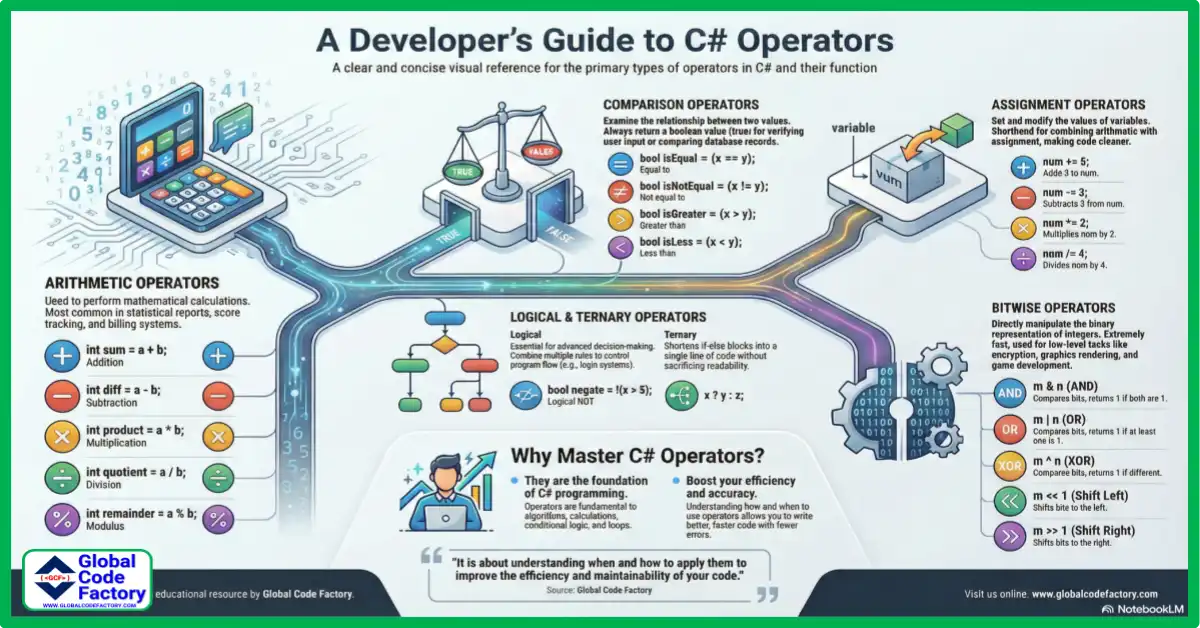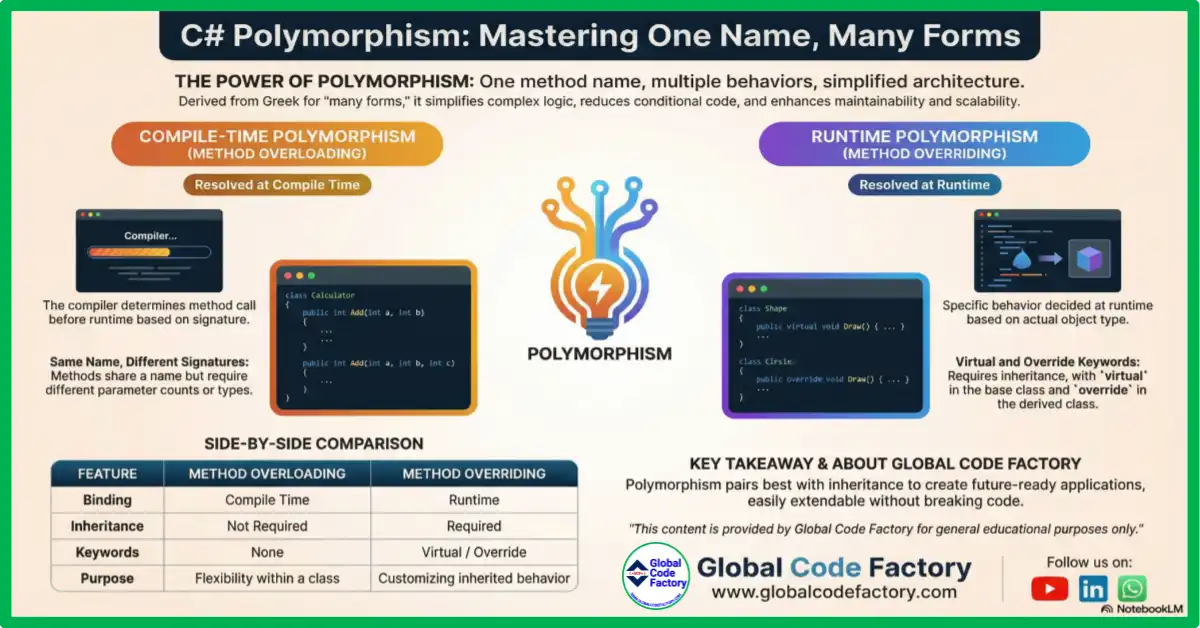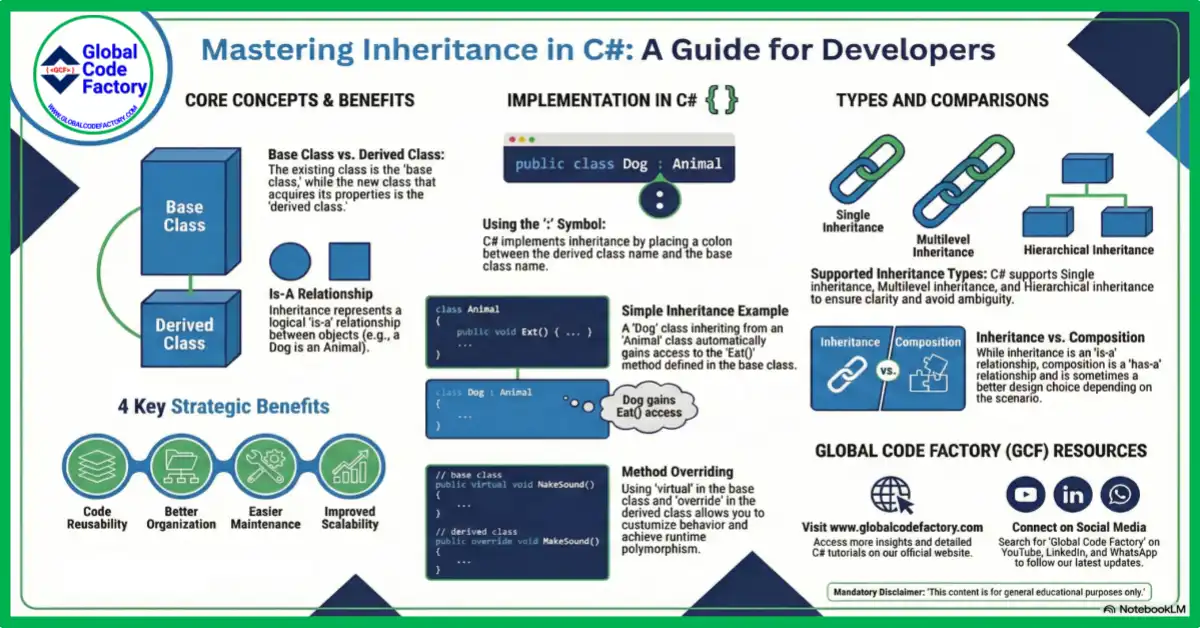Operators in C#: A Complete Beginner’s Guide
In C#, operators are symbols that manipulate variables and values. As a matter of fact, They are crucial to any.NET project. They make managing reasoning, comparisons, and computations easier. Coding will be simpler if you understand these operations, regardless of your level of experience.
Types of Operators in C#
1. Arithmetic operators
They are used to carry out mathematical operations.
Most programs in C# use these operators, making them the most widely used. Moreover, developers apply them in real-world scenarios such as statistical reports, score tracking, and billing systems.
2. Comparison Operators
Comparison operators examine how values relate to one another.
As a result, these operators return either true or false. They are helpful in situations like comparing database records or verifying human input.
3. Logical Operators
It combines multiple conditions via logical operators.
They are essential for advanced C# programming decision-making. To illustrate, we may combine several rules to confirm access while building a login system.
4. Assignment Operators
Assignment operators set and modify variable values.
They combine arithmetic operations and assignments to save time. Code becomes more efficient and cleaner as a result.
5. Bitwise Operators
bitwise operations directly alters the binary representation of integers. Specifically, Low-level programming tasks like encryption, performance optimization, and graphics rendering benefit from their utilization.
Bitwise operations are so quick. Because of this, they are frequently utilized in performance-critical systems, device drivers, and game creation.
6. Ternary Operator
The ternary operator provides a compact way to write conditional statements.
It is highly useful for shortening code without sacrificing readability. In short, one line is enough to determine values rather than an if-else block.
Why Learn Operators in C#?
A crucial first step in learning C# is becoming proficient with its operators. They can be found in algorithms, calculations, conditions, and loops. Writing even the most basic programs would be more difficult without them. You can increase the speed and accuracy of your coding by being aware of these C# operator types.







